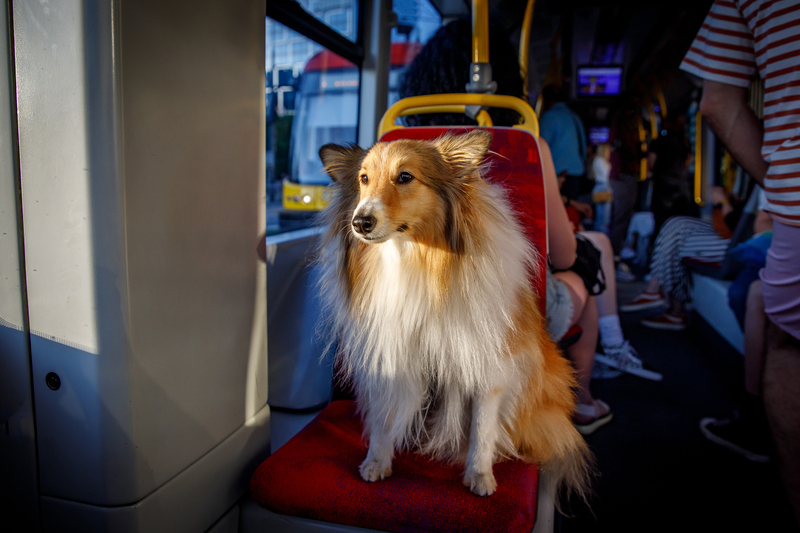
Photo: dreamstime_s_249662933
Manchester welcomes pet dogs on its trams
03 February 2023
by Christopher Carey
What would happen if we let pet dogs on trams?
That was the question Transport for Greater Manchester (TfGM) sought to answer when it launched a three-month trial last August aimed at making the tram network more inclusive.
For years, non-assistance dogs were allowed on most buses and trains in the city, but the tram had been a dog-free zone – much to the annoyance of many Mancunians.
“The British public love their pets, especially dogs, so many residents had always felt there was a barrier,” Danny Vaughan, Head of Metrolink, TfGM, told Cities Today.
“Over the past ten years that I’ve worked here it’s certainly come up as an issue – we’ve seen many complaints, people lobbying for a change, and petitions sent to us.

“In 2015, the Transport for Greater Manchester committee looked at the issue but decided against it.
“There were various concerns and reasons why we wouldn’t do it.”
Potential danger to passengers, soiled carriages and overcrowding were the main reasons behind the operator’s reluctance to give pooches a pass.
But during his re-election campaign in 2021, Greater Manchester Mayor Andy Burnham committed to a pilot, saying he wanted the city’s public transport network “to work for everybody”.
What happened?
The rules for the pilot were simple: dogs had to be kept on short leads and off seats, they couldn’t block wheelchair spaces, and owners were solely responsible for their actions.
Before launching the pilot, TfGM consulted with a range of stakeholders, including disability groups.
“There were concerns about how this would affect blind people with guide dogs for example,” Vaughan added.
“But when we looked around at what other [transport] networks did, we found Manchester was something of an outlier in not allowing dogs.”
“So we changed our bylaws and asked people to just make sure they carried bags for dog-doo, and to keep animals on a leash and under control and so on.”
The operator also set a limit of two dogs per person and unlike some buses, no extra charge was levied on passengers.

“We opened up a consultation channel so we could garner customer and staff feedback – there were some negative comments, but the vast majority were positive.”
Concerns about potential attacks, allergies and use of carriage space were some of those that were voiced, though no incidents were recorded during the three months.
“There were quite a lot of pictures on social media, it was an overwhelmingly positive response,” said Vaughan.
“Any of the concerns that were in the original report back in 2015 – around soiling on trams and so on – were unfounded.
“We had zero incidents – in fact, we probably had more incidents involving human beings than we did involving dogs during that period.”
Survey
During the trial, TfGM ran an online survey which received more than 3,800 responses.
Almost 80 percent of those who took part agreed the pilot should continue.
Of those that did not own a dog, only 50 percent were in favour and the most frequent travellers tended to be less in favour, although still mostly agreed.
The transit operator received 27 phone calls from people opposed to the pilot, as well as 25 emails which were “largely negative”, including one report from a customer complaining of having their trousers chewed by another passenger’s dog – but officers were subsequently unable to obtain any further details after contacting the customer affected.
“I think maybe that was a vexatious report because when we tried to follow up and find out more details, they didn’t want to speak to us,” Vaughan said.
While the conditions of service state that “busy services must be avoided”, Vaughan conceded this would be difficult to enforce given the lack of staff onboard.
“One concern I had was around overcrowding issues – the trams can be quite packed at peak times and I thought the poor animals might get distressed, but we haven’t seen any problems from this.”
After reviewing all insights garnered from the trial, the agency decided to make the pilot permanent last month.
“Overall the pilot went really well, all of the concerns we had previously were unfounded, there was positive engagement and it was well received by the general public,” Vaughan said.
Image: dreamstime_s_249662933













